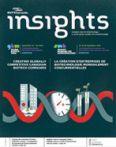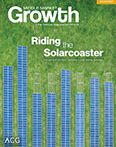How COVID-19 Vaccines Developed in China, Russia and Elsewhere Could Impact the Pandemic
More vaccines could make the world safer, but non-Western vaccine makers face mistrust
Emily Chung · CBC News ·
Is this a surprise?
Yes and no.
Most people can't think of any time they've used a vaccine developed and exported by one of those countries, since "there haven't been products like that," said Achal Prabhala, co-ordinator of the accesIBSA project, a campaign to improve access to medicines in India, Brazil and South Africa.
But many nations have built up the necessary infrastructure and expertise to develop their own vaccines, and weren't expecting easy access to vaccines developed in Europe and North America, which richer countries have been criticized for hoarding.
U.S. economic sanctions against Cuba and the high cost of vaccines would make it difficult for the country to import any, said Helen Yaffe, a lecturer in economic and social history at the University of Glasgow who has studied and written about the development of Cuba's biotechnology industry.
She said the country has produced its own vaccines for decades. "They had the capacity," Yaffe said, "but they also, arguably, had the need."
Why are some of these vaccines controversial?
1. They were used for mass vaccination before clinical trials were complete.
Russia was called "reckless" and criticized by health and science experts in Western media when the country became the first to approve a COVID-19 vaccine for emergency use last August — before Phase 3 trials of Sputnik V had even started. It subsequently gave the vaccine to tens of thousands of health-care workers, teachers and military personnel before Phase 3 trial results were released.
Russia's Sputnik V vaccine has been a political and medical victory for the country, with many nations now scrambling to get doses. But others, particularly former Soviet states, remain suspicious of the vaccines, and of Russia's intentions in promoting it. (Source: CBC)
But it wasn't the only country to use emergency approval to start vaccinating local populations before Phase 3 trials were complete — China, India, Kazakhstan and Cuba did the same.
Prabhala, who is based in India, thinks domestic use by these countries before Phase 3 results may be justified during a deadly pandemic, given that vaccine developers typically know whether a vaccine is safe and whether it shows promise for protecting against a disease by the end of Phase 2 trials.
2. They haven't released or published enough data and ran trials differently.
Colin Funk, an adjunct professor with Queen's University in Kingston, Ont., and a biomedical consultant with Vancouver-based Novateur Ventures, co-authored a paper in the journal Viruses earlier this year with another Novateur consultant, Craig Laferriere, comparing all the front-running vaccines around the world.
Funk said in an interview that it's been hard to get reliable information about the Chinese vaccines because most haven't published the results of clinical trials. Sputnik V's Phase 3 clinical trials were published in The Lancet in February, but results were hard to compare to other vaccines due to differing methods, Laferrière told CBC News.
Sputnik V was recently rejected by Brazilian regulators. Meanwhile, the reported efficacy of Sinovac's vaccine varied from 50.4 per cent in Brazil to 91.25 per cent in Turkey. Some experts have said the lower efficacy in Brazil may have to do with the different protocols and virus variants in the population — even participants with very mild symptoms were tested for COVID-19, unlike other trials, and there was a highly transmissible P1 virus variant circulating.
China has developed four vaccines for COVID-19, but only four per cent of its population has been inoculated. China's government continues to donate millions of vaccine doses worldwide. (Source: CBC)
Prabhala thinks the fact that the trials were run in different countries under different conditions was actually a good thing.
"I think they provide a sort of independent third-party analysis of the vaccine itself, and in a very real way for me, they give me more confidence than having one corporation release one set of data based on one very tightly controlled trial that it ran itself."
However, he said, "I wish we could see little more detail of what the data looked like."
3. There may be biases rooted in culture and politics.
"In general, there's incredulity at the idea that you could have original science that could work anywhere in the world that comes out of a place not in the West," Prabhala said. This exists even in non-Western countries, he said.
He suggested Russia and China may face higher levels of mistrust than other countries "because of the autocratic nature of the state and sometimes the justifiable anger that people feel at the state's human-rights violations."
But those aren't relevant to the actual performance of their vaccines, he said. "I think the question with any of these vaccines is: do they work and are they effective?"
How important are these vaccines for global immunization efforts?
They've already been a big part of vaccination campaigns in their home countries.
Vaccines from China and Russia have also been used in dozens of other countries around the world, many of which have limited or no access to other options.
Chinese vaccines have made up tens of millions of doses delivered in Brazil, Turkey and Chile, Nature reported this week. In Brazil, vaccination of the elderly was linked to a quick decline in mortality compared to unvaccinated age groups, local researchers report in a study that hasn't yet been peer-reviewed.
Meanwhile, in Europe, Hungary and Serbia have much higher COVID-19 vaccination rates than other countries on the continent. Prabhala said that's because they both ordered, evaluated and approved vaccines from Russia and China.
The reach of the Chinese and Russian vaccines could increase with a listing for emergency use by the World Health Organization — something one of Sinopharm's vaccines has already achieved. The WHO recently found Sinovac's vaccine was effective but the company didn't provide enough data, while Sputnik V has been submitted for WHO review.
A WHO listing would allow their use by UN agencies, worldwide distribution through the global vaccine-sharing initiative COVAX and use in countries that don't have the capacity to do their own regulatory approvals.
Meanwhile, Yaffe says Cuba's vaccines bring hope to populations in the global south.
"If they wait for the big pharma companies for vaccines, then it could be many years until they have the possibility of being vaccinated," she said.
Prabhala said more options are better for everyone — even richer nations that have secured deals with some manufacturers. He noted that Canada's initial vaccine rollout was off to a slow start compared to countries like the U.S. and the UK, largely due to manufacturing delays at both Pfizer and Moderna.
"I would imagine, therefore, that had Canada had a wider choice of vaccines available ... the rollout would have been smoother and faster and would have given the country and its people much more security."



